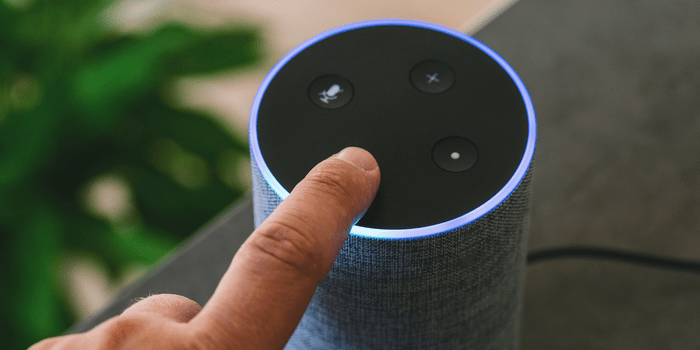FTC: Alexa Data Abuse
Author:
• Elisa Jillson, U.S. Federal Trade Commission (FTC) – reprinted
Article Abstract
The Federal Trade Commission (FTC) underscores critical violations in Amazon and Ring’s handling of consumers’ private data, voice recordings, and video footage. Amidst AI’s burgeoning presence, the complaints highlight companies’ negligence towards customer privacy, breaching the FTC’s Biometric Policy Statement. Emphasizing the pivotal nexus of AI and privacy, the FTC urges caution in data collection, stressing the need for consumer control.
The complaints unveil lapses in consent mechanisms, inadequate data control, and compromised security, prompting the FTC to warn companies about the repercussions of mishandling sensitive data. Protection of biometric data, safeguarding kids’ privacy, and lawful data acquisition emerge as FTC’s priority areas, ensuring enforcement against data misuse.
From the FTC: Hey, Alexa! What are you doing with my data?
What you say in your home, what you do in your home. It doesn’t get more private than that. But, according to two recent FTC complaints, Amazon and Ring used this highly private data – voice recordings collected by Amazon’s Alexa voice assistant and videos collected by Ring’s internet-connected home security cameras – to train their algorithms while giving short shrift to customers’ privacy. These matters, the first announced since the FTC’s new Biometric Policy Statement, contain important lessons for companies using AI, biometric data, and other sensitive information.
AI and privacy should work hand-in-hand
In this age of AI, developers want more and more data – oftentimes, no matter its source. But be careful when collecting or keeping consumer data. Under Section 5’s unfairness standard, the FTC doesn’t look just at AI’s potential benefits, but also at the costs to consumers. According to the complaints, Amazon and Ring failed that test. The FTC alleged Ring’s data access practices enabled spying and harassment, while Amazon’s permanent retention of voice data and shoddy deletion practices exposed consumers’ voice recordings to the risk of unnecessary employee access. The message for businesses: The FTC will hold companies accountable for how they obtain, retain, and use the consumer data that powers their algorithms. As the Commissioners put it in their joint statement in the Alexa matter, machine learning is not a license to break the law.
Consumers – not companies – control their data
Some companies think they’re free to use personal data in their possession for any purpose they choose. Not so fast. The FTC complaints against Amazon and Ring make clear that companies that ignore consumers’ rights to control their data do so at their peril. In its complaint, the FTC says Ring gave all employees and contractors access to customers’ videos to train algorithms (among other things) with only check-the-box “consent.” But that’s not enough to ensure that users are really in control of what happens to their information. And in the Amazon complaint, the FTC says Amazon undermined parents’ rights under the Children’s Online Privacy Protection Act (COPPA) Rule to delete their children’s voice recordings. Parents have the right under the COPPA Rule to decide what data about their children is stored by a company, and what data is deleted. The upshot is clear: Any company that undermines consumer control of their data can face FTC enforcement action.
Place special safeguards on human review and employee access to sensitive data
AI developers often rely on human reviewers to tag and annotate the data that trains machine learning algorithms. But do consumers know when their data is under review? In its complaint, the FTC says Ring hid this review from its customers and let reviewers abuse their access to consumers’ videos. As a result, Ring’s customers – who bought Ring’s products for more security – ended up being the target of Ring employees’ spying and surveillance. The Amazon complaint also says that Amazon didn’t use appropriate controls to limit which employees could access Alexa users’ voice recordings, so thousands of employees had access to sensitive voice recordings that they didn’t need. Companies relying on human review are on notice that safeguards for sensitive data, including strict access controls, can’t be an afterthought. They should be the first step.
The FTC protects biometric data
Last month, the FTC issued a policy statement on the protection of biometric data. That statement explains that biometric data – whether fingerprints and iris scans or videos and voice recordings – deserves the utmost protection because of its inherent sensitivity and the potential for bias, discrimination, and other harmful uses. The FTC’s settlements with Amazon and Ring underscore that when the FTC says protecting biometric data is a priority, it means what it says – and the Commission will back up that policy with enforcement action.
The FTC uses every tool available to protect kids’ privacy
After a series of enforcement actions about kids’ and teen privacy (think Microsoft, Epic Games, Edmodo, Weight Watchers (Kurbo), and Chegg), it should be clear that protecting kids is a top FTC priority. That’s especially true at the intersection of AI and kid and teen privacy. In the Amazon complaint, the FTC says Amazon was keeping kids’ voice recordings (both audio files and transcripts) permanently and undermining parents’ deletion rights. According to the complaint, Amazon could then use that data for natural language processing. In the Ring complaint, the FTC describes Ring’s cavalier approach to privacy and security, notwithstanding the fact that its cameras were marketed to watch over kids’ bedrooms. The FTC’s response? No dice. The FTC will use every available tool – including the COPPA Rule and the FTC Act’s prohibitions on deceptive and unfair practices – to protect kids’ privacy.
Want to keep your algorithms and data products? Get the data lawfully
With Ring and Alexa, as well as Kurbo, Cambridge Analytica, and Everalbum, the FTC has obtained numerous orders requiring companies to delete data and delete or refrain from generating data products, like algorithms, models, and other tools derived from ill-gotten data. These actions make clear that there are no free passes for data abuse. If you illegally obtain or misuse consumer data, you may well pay with your data product.
More ScamsNOW.com Articles
-/ 30 /-
What do you think about this?
Please share your thoughts in a comment below!
Important Information for New Scam Victims
- Please visit www.ScamVictimsSupport.org – a SCARS Website for New Scam Victims & Sextortion Victims.
- SCARS Institute now offers its free, safe, and private Scam Survivor’s Support Community at www.SCARScommunity.org – this is not on a social media platform, it is our own safe & secure platform created by the SCARS Institute especially for scam victims & survivors.
- SCARS Institute now offers a free recovery learning program at www.SCARSeducation.org.
- Please visit www.ScamPsychology.org – to more fully understand the psychological concepts involved in scams and scam victim recovery.
If you are looking for local trauma counselors, please visit counseling.AgainstScams.org
If you need to speak with someone now, you can dial 988 or find phone numbers for crisis hotlines all around the world here: www.opencounseling.com/suicide-hotlines
Statement About Victim Blaming
Some of our articles discuss various aspects of victims. This is both about better understanding victims (the science of victimology) and their behaviors and psychology. This helps us to educate victims/survivors about why these crimes happened and not to blame themselves, better develop recovery programs, and help victims avoid scams in the future. At times, this may sound like blaming the victim, but it does not blame scam victims; we are simply explaining the hows and whys of the experience victims have.
These articles, about the Psychology of Scams or Victim Psychology – meaning that all humans have psychological or cognitive characteristics in common that can either be exploited or work against us – help us all to understand the unique challenges victims face before, during, and after scams, fraud, or cybercrimes. These sometimes talk about some of the vulnerabilities the scammers exploit. Victims rarely have control of them or are even aware of them, until something like a scam happens, and then they can learn how their mind works and how to overcome these mechanisms.
Articles like these help victims and others understand these processes and how to help prevent them from being exploited again or to help them recover more easily by understanding their post-scam behaviors. Learn more about the Psychology of Scams at www.ScamPsychology.org
SCARS INSTITUTE RESOURCES:
If You Have Been Victimized By A Scam Or Cybercrime
♦ If you are a victim of scams, go to www.ScamVictimsSupport.org for real knowledge and help
♦ SCARS Institute now offers its free, safe, and private Scam Survivor’s Support Community at www.SCARScommunity.org/register – this is not on a social media platform, it is our own safe & secure platform created by the SCARS Institute especially for scam victims & survivors.
♦ Enroll in SCARS Scam Survivor’s School now at www.SCARSeducation.org
♦ To report criminals, visit https://reporting.AgainstScams.org – we will NEVER give your data to money recovery companies like some do!
♦ Follow us and find our podcasts, webinars, and helpful videos on YouTube: https://www.youtube.com/@RomancescamsNowcom
♦ Learn about the Psychology of Scams at www.ScamPsychology.org
♦ Dig deeper into the reality of scams, fraud, and cybercrime at www.ScamsNOW.com and www.RomanceScamsNOW.com
♦ Scam Survivor’s Stories: www.ScamSurvivorStories.org
♦ For Scam Victim Advocates visit www.ScamVictimsAdvocates.org
♦ See more scammer photos on www.ScammerPhotos.com
You can also find the SCARS Institute’s knowledge and information on Facebook, Instagram, X, LinkedIn, and TruthSocial
Psychology Disclaimer:
All articles about psychology and the human brain on this website are for information & education only
The information provided in this and other SCARS articles are intended for educational and self-help purposes only and should not be construed as a substitute for professional therapy or counseling.
Note about Mindfulness: Mindfulness practices have the potential to create psychological distress for some individuals. Please consult a mental health professional or experienced meditation instructor for guidance should you encounter difficulties.
While any self-help techniques outlined herein may be beneficial for scam victims seeking to recover from their experience and move towards recovery, it is important to consult with a qualified mental health professional before initiating any course of action. Each individual’s experience and needs are unique, and what works for one person may not be suitable for another.
Additionally, any approach may not be appropriate for individuals with certain pre-existing mental health conditions or trauma histories. It is advisable to seek guidance from a licensed therapist or counselor who can provide personalized support, guidance, and treatment tailored to your specific needs.
If you are experiencing significant distress or emotional difficulties related to a scam or other traumatic event, please consult your doctor or mental health provider for appropriate care and support.
Also read our SCARS Institute Statement about Professional Care for Scam Victims – click here
If you are in crisis, feeling desperate, or in despair, please call 988 or your local crisis hotline – international numbers here.
More ScamsNOW.com Articles
A Question of Trust
At the SCARS Institute, we invite you to do your own research on the topics we speak about and publish. Our team investigates the subject being discussed, especially when it comes to understanding the scam victims-survivors’ experience. You can do Google searches, but in many cases, you will have to wade through scientific papers and studies. However, remember that biases and perspectives matter and influence the outcome. Regardless, we encourage you to explore these topics as thoroughly as you can for your own awareness.
























![NavyLogo@4x-81[1] FTC: Alexa Data Abuse - 2023](https://scamsnow.com/wp-content/uploads/2025/04/NavyLogo@4x-811.png)
![scars-institute[1] FTC: Alexa Data Abuse - 2023](https://scamsnow.com/wp-content/uploads/2025/04/scars-institute1.png)

![niprc1.png1_-150×1501-1[1] FTC: Alexa Data Abuse - 2023](https://scamsnow.com/wp-content/uploads/2025/04/niprc1.png1_-150x1501-11.webp)